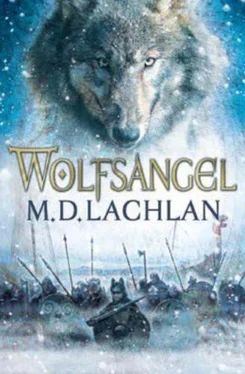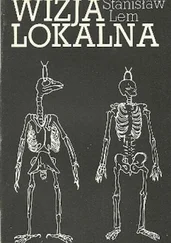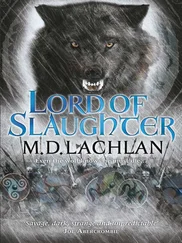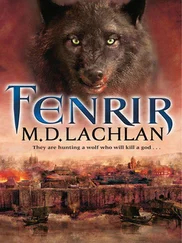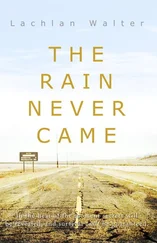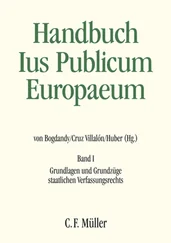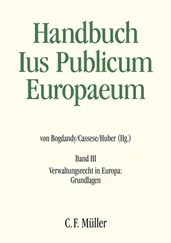M. Lachlan - Wolfsangel
Здесь есть возможность читать онлайн «M. Lachlan - Wolfsangel» весь текст электронной книги совершенно бесплатно (целиком полную версию без сокращений). В некоторых случаях можно слушать аудио, скачать через торрент в формате fb2 и присутствует краткое содержание. Жанр: Фэнтези, на английском языке. Описание произведения, (предисловие) а так же отзывы посетителей доступны на портале библиотеки ЛибКат.
- Название:Wolfsangel
- Автор:
- Жанр:
- Год:неизвестен
- ISBN:нет данных
- Рейтинг книги:5 / 5. Голосов: 1
-
Избранное:Добавить в избранное
- Отзывы:
-
Ваша оценка:
- 100
- 1
- 2
- 3
- 4
- 5
Wolfsangel: краткое содержание, описание и аннотация
Предлагаем к чтению аннотацию, описание, краткое содержание или предисловие (зависит от того, что написал сам автор книги «Wolfsangel»). Если вы не нашли необходимую информацию о книге — напишите в комментариях, мы постараемся отыскать её.
Wolfsangel — читать онлайн бесплатно полную книгу (весь текст) целиком
Ниже представлен текст книги, разбитый по страницам. Система сохранения места последней прочитанной страницы, позволяет с удобством читать онлайн бесплатно книгу «Wolfsangel», без необходимости каждый раз заново искать на чём Вы остановились. Поставьте закладку, и сможете в любой момент перейти на страницу, на которой закончили чтение.
Интервал:
Закладка:
‘Lord, I see a sea serpent, a beast of venom and fury that could devour the world snake himself. Allow me the glory of testing my spear upon it.’ As death approached, it seemed Varrin was already writing himself into a saga: his language became finer, emulating the songs of the skalds. Authun joined in, to honour his friend.
‘You are right, brave Varrin. Fight and win honour. You will need strong armour against such a serpent. On you I bestow this byrnie, this sheltering roof of blows.’
Authun took his mail coat from its barrel and held it up. Varrin bowed, humbled by the honour, and allowed the king to dress him. When the byrnie was tight about him, the king took out the golden wolf helm, its ruby eyes part of a trove of plunder taken from the Franks of the south. He placed it on his friend’s head and knotted the straps. Then he tied on his rich cloak. Finally he put Varrin’s spear in his hand.
‘Tell my wife she was as fine a woman who ever kept a key,’ said Varrin. ‘Though she was given to me, I loved her. May my sons serve you as I have served you. Dispose of my daughters in marriage as if they were your own.’
By the prow, the woman slept with her boys in her arms.
‘You will dine at my right hand in Odin’s hall,’ said Authun.
‘We shall be drunk for all time,’ said Varrin.
Varrin turned to the side of the boat and put one foot on the rail. ‘Now, serpent!’ he said, his voice low with determination. Without a look left or right he dived from the longship, stabbing into the waves as he leaped. In Authun’s splendid byrnie and helmet there was no swimming, and in an instant he was gone. The king swallowed and turned away. Varrin’s death had been necessary; no more to think about it.
In the prow the woman and the babies stirred, though Authun was surprised to see she hadn’t woken. She had hardly closed her eyes during the voyage but it was as if she felt some comfort and security coming from the land and had finally given in to sleep.
Authun, in all his wars, had never killed a woman before. They were too valuable as slaves was the reason he gave himself. But there was something else.
He stood above her watching the two children sharing her sleep at her breast. He had his hand on his knife. Soon he would use it to kill her, he thought, perhaps when they met the witches, perhaps just before he returned to his wife. Whenever, it would be by the knife. The Moonsword had only ever killed warriors and he wouldn’t stain it with the blood of a woman. And yet he felt it wrong to finish her with the same implement he would use to gut a fish. She was a mother and, to him, that deserved some respect. He had seen his wife go through labour five times and had wondered how many of his men would stand such pain.
There seemed something precious and worth preserving in the bond between the mother and her children, a warmth that seemed to spread from her. Authun the Pitiless felt something stir in his breast that, had he known it, was the first faint flickering intimation of his doom.
The woman had a charm given to her by the boys’ father, a curious, wandering man in an age when lonely wanderers were rare. Few would dare to walk the land alone, at the prey of hostile villagers, offended lords, bandits, wild men, trolls, elves and wolf men. But the boys’ father had dared. The amulet — just a wolf’s head scratched on a pebble — would offer her protection, he had said, and left. So far it had offered her none at all but she clutched it to her in her sleep. When Authun the Wolf, slayer of the giant Geat, pillager of the east, feared lord of the white wastes, touched his knife and looked down at her he felt pity. It was a new emotion for him but who is to say it was the stranger’s charm? A man has to become tired of slaughter eventually. Only the gods have an endless appetite for that.
The ship, under no direction, had turned across the waves and made a sudden violent jar. Authun kept his balance but the woman and the babies were shaken and slid against a chest. They awoke in a confusion of screaming, and for an instant the woman stared at Authun with that penetrating bloody eye. The king, who could face down any enemy, turned quickly to steady the boat. Action, as always, kept reflection at bay.
The woman watched him tie the rudder and work the sail and thought him the second most terrible thing she had ever seen. She recognised him for what he was, a belligerent self-seeker who had taken all the fears he had in him and thrown them at his enemies, a snatcher, a killer and a hero.
The children’s father had said he was bored by heroes but Authun seemed anything but boring — terrible, murderous, almost divine. As he’d taken her from the church, the arrows flying, the fires blazing and the villagers screaming, he had seemed a point of unnatural calm, a rock in the eddying currents of violence. It was as if, for him, that situation was normal. If she ever met the god of war, she thought, Authun is how he would look.
The gods, however, had been much closer in her life.
3
The mother’s name was Saitada and she had been very beautiful, sold as a young child when she was captured from her own people. Then her name had been Badb. As she had grown she had attracted the sexual attention of her owner — a smith. He was a generous man and liked to share her with his friends. At the age of thirteen she had cursed her good looks, taken a hot iron from the forge and applied it to her face.
The smith had been furious. He had tried to beat her but for some reason couldn’t bring himself to do it. He wanted to hold her, to kiss her, tell her he would make things all right, but he knew the girl would never come near him any more except by force. For as long as he’d owned her he had been convinced there was some bond between them — that despite her tears and her protestations, her eventual sullen withdrawal, that she felt something for him, even that he was special to her. There on her face he confronted the damage he had done and, as a coward, could not bear to look at it in his home. So he’d just taken her to market. Though she had been delirious with pain from her wound, she remembered that place, where she had stood alongside goats and pigs in the shit and the stink to be prodded and inspected and sold on.
‘This one,’ said the farmer’s wife, who could have been mistaken for an upright pig in the wrong light. ‘This one I think is very suitable.’
The farmer, whose advancing years had neither increased his discernment nor reduced his lust, had been delighted. If he positioned her right then he would have a rare beauty to enjoy. Then he had looked into that eye and the idea had seemed impossible. He felt bad for having had such lewd thoughts and took pity on the girl.
‘Yes,’ he said, ‘she will make a fine maid.’
They had asked her what she was called and she, wishing to leave the sullied little girl with the pretty face behind, had chosen another of her people’s names. Saitada.
The farmer’s wife had picked her for her horrible looks, fearing to lose her husband’s affections to a prettier girl. The wound, she knew, would not put a man off because a man in passion is a beast that no small deformity can deter. It was the bloody eye that seemed to look through you and expose your sins to shame that would keep her husband true. No man, she thought, could have that look upon him and feel his misdeeds would go unpunished.
The farmer’s wife was a healer and had dressed and cared for the girl’s wounds with presses of comfrey and chamomile. Lacking children of her own, she lavished attention on her, combed and plaited her hair, made her a pretty dress and even gave her a bed. Saitada was as happy there as she had ever been, though she swore she would never take another man. And she never did, until she was seventeen.
Читать дальшеИнтервал:
Закладка:
Похожие книги на «Wolfsangel»
Представляем Вашему вниманию похожие книги на «Wolfsangel» списком для выбора. Мы отобрали схожую по названию и смыслу литературу в надежде предоставить читателям больше вариантов отыскать новые, интересные, ещё непрочитанные произведения.
Обсуждение, отзывы о книге «Wolfsangel» и просто собственные мнения читателей. Оставьте ваши комментарии, напишите, что Вы думаете о произведении, его смысле или главных героях. Укажите что конкретно понравилось, а что нет, и почему Вы так считаете.
